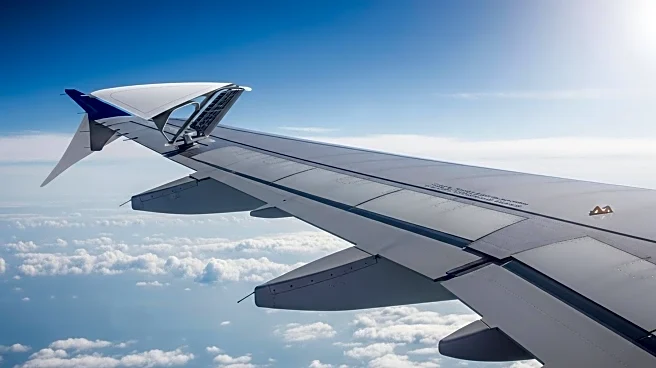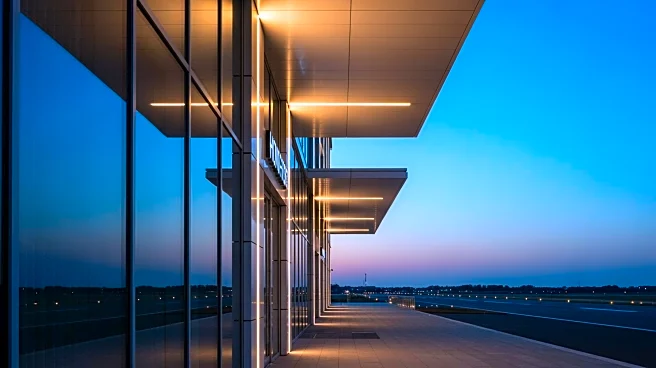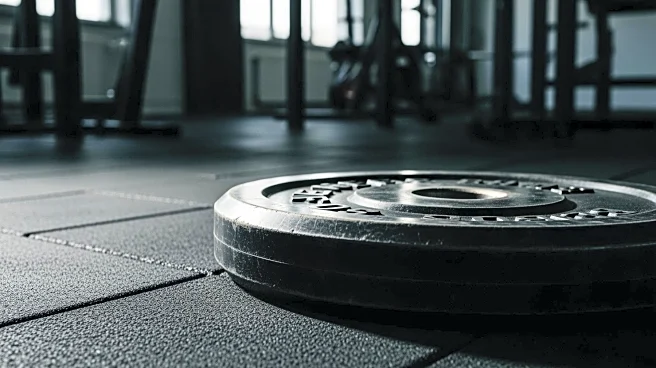What's Happening?
Boeing has developed a groundbreaking folding wingtip system for its 777X aircraft, designed to address the challenge of fitting the plane's expansive wingspan into existing airport infrastructure. The 777X features a wingspan of 235 feet, longer than a Boeing 747, which enhances fuel efficiency and range due to advanced carbon-fiber construction. The folding wingtips allow the outer 11 feet of each wing to fold upward while on the ground, enabling the aircraft to fit into standard airport gates. This innovation is crucial for airlines to operate larger, more efficient planes without necessitating airport modifications. The Federal Aviation Administration (FAA) has created new certification rules specifically for this technology, highlighting its significance in commercial aviation. Despite the technological advancements, the 777X's entry into service has been delayed due to technical and regulatory challenges, including issues with the GE9X engines and software integration.
Why It's Important?
The folding wingtip technology on the Boeing 777X represents a significant advancement in commercial aviation, offering airlines a solution to operate larger aircraft without requiring changes to airport infrastructure. This innovation is expected to improve fuel efficiency by 10%, which is crucial for airlines facing rising fuel costs and environmental pressures. The ability to fit into existing airport gates without special accommodations allows airlines to maximize operational efficiency and reduce emissions, aligning with sustainability goals. Major airlines such as Emirates, Lufthansa, and Qatar Airways are anticipating the 777X to modernize their long-haul fleets, indicating the aircraft's potential impact on global air travel.
What's Next?
Boeing plans to deliver the first 777X jets by 2025, following extensive ground and flight testing to ensure the reliability of the folding wingtip system. The company has simulated thousands of folding cycles to guarantee the system's performance over the aircraft's lifetime. As the 777X enters commercial service, the reliability of the folding mechanism will be closely monitored, with backup power sources and manual overrides in place to prevent operational disruptions. The success of this technology could influence future aircraft designs, with other manufacturers exploring similar concepts to enhance efficiency and sustainability in aviation.
Beyond the Headlines
The introduction of folding wingtips on the Boeing 777X may set a precedent for future widebody jets, as airlines seek greater efficiency and airports face increasing congestion. This adaptable wing design could become a standard feature in next-generation aircraft, promoting sustainability by reducing emissions and operating costs. The technology exemplifies how incremental innovations can lead to significant improvements in aviation, emphasizing the importance of smart adjustments over complete reinventions.









